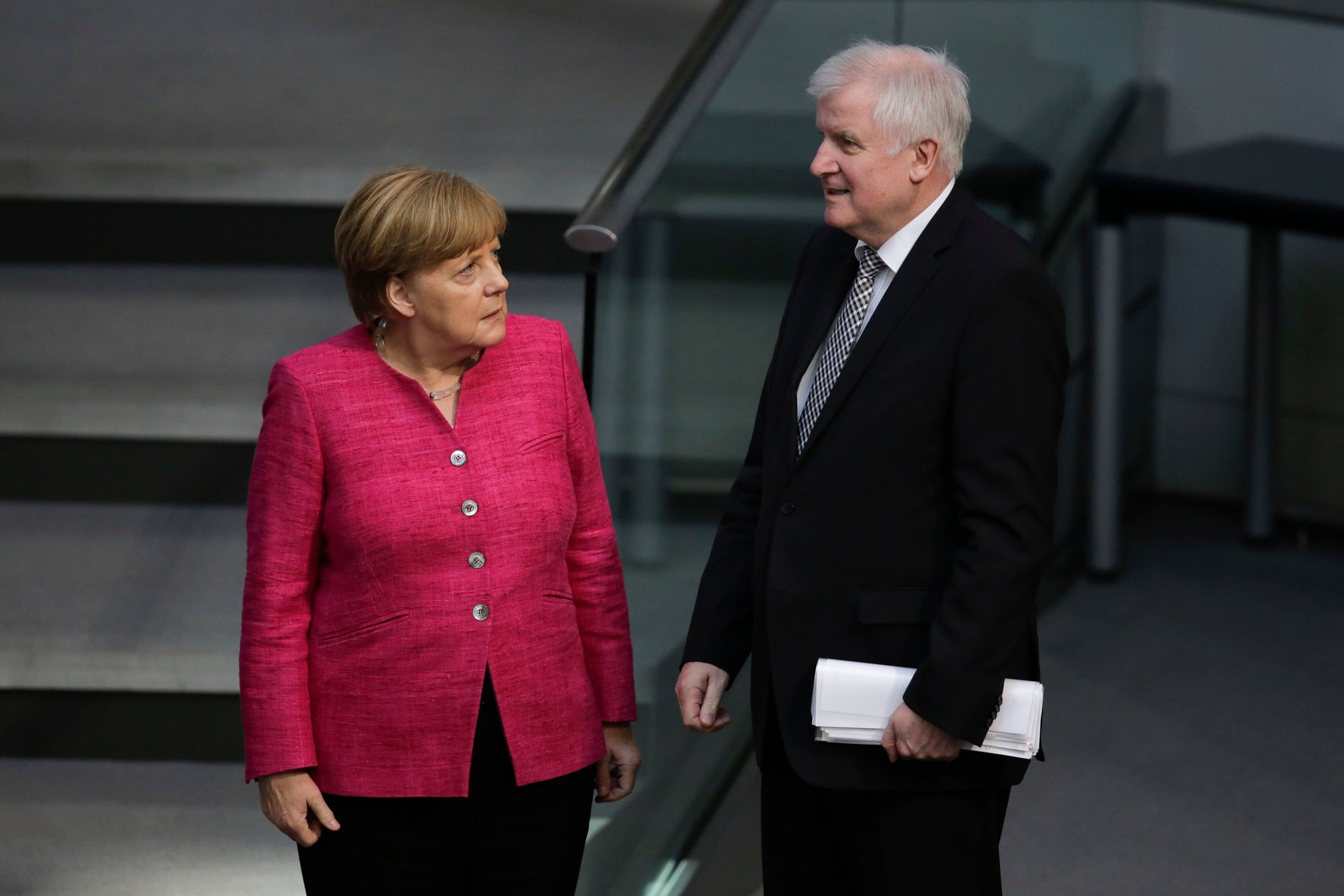Angela Merkel has ditched her open-door refugee policy to save her government
Despite the usual predictions of her demise, Angela Merkel is still standing—albeit weaker than ever before after a face-off with her nemesis, interior minister Horst Seehofer.


Despite the usual predictions of her demise, Angela Merkel is still standing—albeit weaker than ever before after a face-off with her nemesis, interior minister Horst Seehofer.
The German political crisis that looked likely to smash the coalition government after just 100 days dissipated late yesterday (July 2) when the chancellor did what she’s famous for and hashed out a compromise on refugee policy.
Seehofer, who heads the Christian Social Union, sister party of Merkel’s Christian Democrats, had threatened to resign if Merkel wouldn’t agree to turn away refugees who had been registered in another EU country. He insulted Merkel in a newspaper interview saying, “I will not let myself be dismissed by a chancellor who is only chancellor because of me.”
Merkel could have fired Seehofer. But if he had pulled the CSU out of the coalition, the government would have collapsed—and Merkel’s career likely would have been over.
Instead, the chancellor, who’s been bogged down in bickering with the immigration hardliner since the start of her fourth term, agreed to set up “transit centers” for asylum seekers. They are being described as akin to holding centers in some German airports, where asylum seekers are held until they are approved for legal entry.
Applicants in these centers—which would be built on the border with Austria—could then be turned away and sent back to whatever EU country they came from. This likely won’t go down well with countries like Italy, which has borne the brunt of migrant arrivals since 2015.
Sebastian Kurz, the anti-immigration chancellor of Austria, said that if the German government went ahead with the plan, he would take action to seal off Austria’s southern borders with Italy and Slovenia. If other countries also were to beef up border security, the EU’s borderless Schengen area could be endangered.
German politicians who criticized the agreement say Merkel and her conservatives had abandoned the country’s moral mission. Bernd Riexinger, chairman of the Left Party, tweeted that “Transport centers are de facto mass internment camps. Humanity is the loser.”
Merkel, of course, never promised to keep the borders open forever. In shoring up her job and the government for now, she may have created a ripple effect that will spread out to the rest of the EU soon.